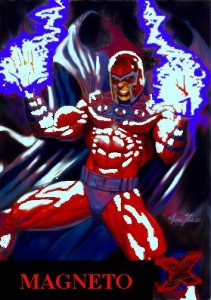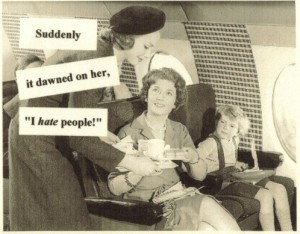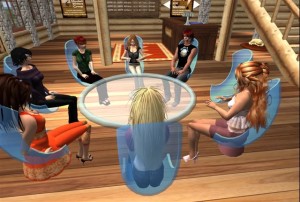
So Clare regaled us with the best and worst of Australia yesterday.
My vacation tale is a bit more raw-edged. Over Labor Day, I nearly wound up as road kill at the hands of a schizo. Make that tram kill, since I was on a train in Portland at the time.
Here’s what happened: We were in Portland so that my daughter could attend an anime convention. Anime, as you know if you’re from any planet in the galaxy, is the world of animation. Basically, an anime convention is like a weekend-long Halloween party—everyone gets dressed up as their favorite characters.
So while she was romping around dressed as some kind of warrior princess, I spent the weekend taking in the sights of Portland. And for the most part, Portland is a lovely, charming city. But during my day-long walking tour, there seemed to be quite a number of homeless people around. And they were, how should I put it, extremely…loud. At one point I said to an acquaintance, “Maybe it’s because we never walk in LA, but don’t a lot of people seem to be shouting here?”
For example, one lady I called the “Sun Worshipper” because she threw her head and arms skyward every time she stepped into a patch of sunshine, and let loose with a holler. A hell of a holler.
Other shouters were the types you’d cross the street to avoid.
And finally, there was the guy I encountered on the train. I’d stepped onto the train—called the MAX—because I was too exhausted to keep walking. But then the train didn’t move for a while—God knows why.
While the train was stopped, a homeless-looking (and smelling) man grew increasingly agitated. He was pacing, shouting and air-boxing.
Now here’s something you should know about me. I attract crazies. I attract shizos on the street like people who don’t like cats attract every feline in the house. I’m like the Doctor Magneto of madmen. Why? I have no idea. My husband claims it’s because I’m too engaging, outgoing, and I never mind my own business. And he may have a point.

Take the guy on that tram in Portland. When I sat down, he was doing little circles around and around the middle of the tram. Each lap of his circle brought him closer to me. Sitting next to me were a couple of elderly ladies, and they were getting quietly nervous. Meanwhile, the guy kept trying to make eye contact with me. And his shouts were getting louder.
Finally I said to the ladies, “I think you’d better move to the front of the car.” Which they promptly did.
It was my next move that got me in trouble. On the next lap of this guy’s ranting orbit, I stood up, stepped toward him and said, “Now would be a good time for you to step off this train.”
For a second he stopped air-boxing and stood there, dumbfounded.
So I repeated, “Now’s a good time to leave the train.”
That’s when all his anger returned, only this time, it came back as a Category Four hurricane. And I was New Orleans.
There was a sheet of Plexiglass between us. He kung fu kicked it with tremendous force, right where my face would have been if it hadn’t been for the Plexiglass.
It’s amazing how alone you can feel when you’re in a crowd and someone is going after you. Everyone simply sits, silent and frozen, like spectators watching something on TV.
Even I felt like a spectator. I stood there, watching this guy pummel the Plexiglass, screaming at me. I wondered what it was going to feel like when his foot or his fist made contact with my flesh.
But then something miraculous happened.
He stepped off the train. And then the train began to move, and the door closed.
He continued to beat the window of the train. He pulled up his sleeve to show me some kind of tattoo. It looked like something religious, or maybe it said “Death from Above.” I couldn’t tell.
The fact that the train was leaving without my attacker put me in a decent mood, so I gave him a thumbs-up for his tattoo. Then I waved good-bye as we pulled away.
After the action was over, it was funny how convivial and chatty everyone got all of a sudden. One guy asked me why the man had taken out after me like that. I said, “I don’t know, I just have that effect on men.”
But one thought stayed with me during the entire episode (besides not giving instructions to crazies–that one I’ve totally learned). I decided it would be a good idea to carry some kind of weapon.
Not a gun—too lethal, and way too many sticky gun control laws. Not even a knife, I think. No, I’m looking for something disabling without being deadly. Anyone have any good ideas about that?
Anyway, next year for the anime convention, I’ll satisfy myself by donning an electric-blue wig and fake sword to play-act the warrior princess. Becoming one in real life is way too hazardous to one’s health.


























